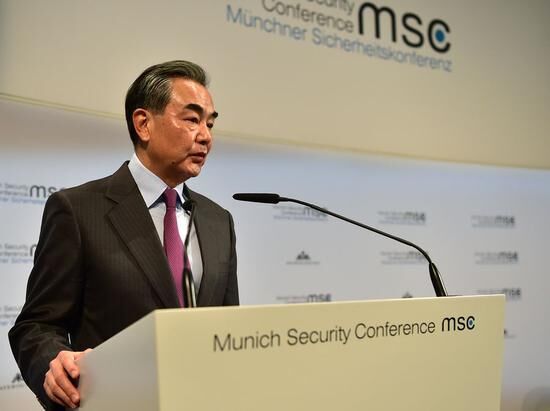In an interview with the website of the Strategic Council on Foreign Relations, Dr Seyed Mohammad Marandi cited US Secretary of State’s address at the Munich Security Conference that the Chinese Communist Party is the biggest threat not only to the West but to the Western line of thinking. He said the agreements reached between the two countries after the trade war was not a deal expected of the Americans, so they are pursuing their goals by bullying and taking the daughter of Huawei founder hostage in Canada, as well as publicity against the Chinese government.
He emphasized that the United States did not accomplish what it was after at the negotiating table and it is, therefore, seeking pressure on China in other ways. China’s growth in spite of the special conditions of the country and because of the Coronavirus and the psychological war Washington has waged against Beijing to terrify the people and create some kind of chaos in China is significant. This growth is in a way that the US and Europe are lagging behind, so American attacks on China will not stop.
Referring to the escalation of US unilateralism and totalitarian policies, especially in the Trump era, despite the negative effects on the growth of the American economy, the analyst said: Pompeo has many similarities to Trump, and the ill-tempered literature is used by both of them. So Pompeo’s remarks in such a situation are not surprising, and these approaches will continue.
Referring to China’s position that the US Secretary of State’s remarks were fraught with Cold War ideas and political discrimination, Marandi said: “These positions were also seen in the Democratic government. America views China strategically as its enemy. That Obama wanted to reduce presence in the Middle East was due to the need for a more serious military presence in East Asia to step up pressure on China, but during the Trump era, we are seeing an accelerating confrontation.
He added: “America has weakened internationally and its confidence has decreased. Today, Americans have failed in Yemen, Syria, Afghanistan, Lebanon, Iraq, as well as in their policy of pressure on Iran and they failed to make accomplishments in countering the Chinese economy. This is while the US allies in Europe are faced with numerous internal crises. Naturally, such a government, which considered itself to be a world power, manifested itself in nervous behaviours and behaved more aggressively to protect itself. They are unaware that this more violent and nervous behaviour speeds up the decline.
Referring to Pompeo’s description of Huawei as Chinese Trojan horse and US concern about Europe’s proximity to China, despite the opposition of Washington, the university professor said: “This is indicative of the decline of American power.” Today, they have challenged their closest allies through threats and intimidation. We are aware of their positions towards the UK, Australia and Germany in relation to Huawei.
Marandi said that the United States wants to monopolize the G5 Internet technology, adding that Huawei’s technology growth rate has been significantly higher than that of American companies, so American companies are lagging behind, reflecting the overall US conditions. Because modern technologies were the only area in which they were ahead of the Chinese, they are also lagging behind and want to solve their problem by bullying.










0 Comments